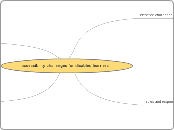accessibility challenges for disabled learners
identified challenges
What is disability?
dda http://www.opsi.gov.uk/acts/acts1995/plain/ukpga_19950050_en a person has a disability for the purposes of this Act if he has a physical or mental impairment which has a substantial and long-term adverse effect on his ability to carry out normal day-to-day activities.
Physical accessibility
student who had to change his a-level choices as the art studio was could not be made accessable for a wheel chair user in time for him to start
accessing printed material
visualy impaired
Dyslexic
The BDA estimates that around 4% of the population (over 2 million people in the UK) is severely affected by dyslexia http://readingroom.lsc.gov.uk/lsc/NorthWest/LLDDAnalysisMay2008.pdf
Not accepted as needing help
dyslexia
Difficulty organisational skills
Dyslexic
difficult social interaction
Asperger's
Any other disability
http://readingroom.lsc.gov.uk/lsc/NorthWest/LLDDAnalysisMay2008.pdf Census data indicates that the NW has a higher proportion of people who consider they have a limiting long-term illness than England as a whole
roles and responsibilities of key individuals
teaching staff
Too complecated to ceate the same poerpoint in a dozen different colour combinations
Network support
Not allowing any multimedia as it is not accessable
Students with dyslexia have the option of requesting that their network profile is amended to include a coloured background on the screen. Most students have only limited access to changing settings.
Accessible features of windows ofetn locked down.
There are inherent tensions in meeting accessibility needs. For example, the desire for network security versus the desire for user personalisation or the benefits of giving teaching and learning staff autonomy in uploading resources versus the variable quality of unregulated material http://www.techdis.ac.uk/index.php?p=2_2_3_3_1.
Staff Development
The most cost effective way of teaching it is to include it when staff are acquiring the IT skills in the first place. Failure to do so can result in staff producing less accessible materials as they experiment with unhelpful fonts, incorrect formatting techniques and inappropriate layoutshttp://www.techdis.ac.uk/index.php?p=2_2_3_3_1.
aditional learning support manager
She is happy to let learners use the equipment but only if they have been identified as having a specific disability
Has lots of equipment (tvs, cameras) but wont even tell the ILT manager what she's got.
The need for assistive technology is assessed on an individual basis. The college provides reader software for the visually impaired and has provided a small keyboard and mouse for another student.
Forhttp://www.techdis.ac.uk/index.php?p=2_2_3_11 many colleges, assistive technology consists of a narrow range of expensive software provided on an ad hoc basis but in reality a wide range of free or open source technologies exist. Few of these technologies match the sophistication of commercial software, but they do offer a repertoire of inexpensive solutions which can provide benefits for both disabled and non-disabled learners.
SMT
accessibility is embedded via cross refferenced strategies
Not an add on
role of assistive technologies in addressing these challenges.
non assistive tech
MS Wii popular with wheelchair users, develops social interactions, particularly remotely
use of eeepc with asbergers syndrome- develops social skills
Teachers believe that Elearning is effective for students who have been absent due to illness and need to find alternative methods of staying in touch
capture evidence on basic camcorders and digital sound recorders, head mounted cameras
pdas for learners with retentive memory problems eg dyslexia, brain injries, syncing outlook with pda,
Assistive tech
, we have Jaws, SupaNova, a CCTV system, booked out on a needs basis, trackball, mice , lower case keyboards filter screens,
Assistive tech for all
we have a site licence for a piece of mind mapping software called ‘Inspiration’
Site licence for read write gold
influences
Legislation
Disability Discrimination Act (DDA) (1995)
he Special Educational Needs and Disability Act (SENDA) (2001) became dda part 4
Under the Disability Discrimination Act Part 4, it is unlawful for education providers to treat disabled people ‘less favourably’ than non-disabled people. Colleges are also required to make reasonable adjustments to ensure a disabled student is not placed at a ‘substantial disadvantage’
Disability Equality Duty (DED) (2006)
Requires Disability Equality Scheme (DES
Funding
MoLENet
Learning for living and Work (LLW)
6. Funding for students with disabilities in further educationIn England, FE colleges get the majority of their funding from the Learning and Skills Council (LSC). Before giving funding to a college,
